INTRODUCTION
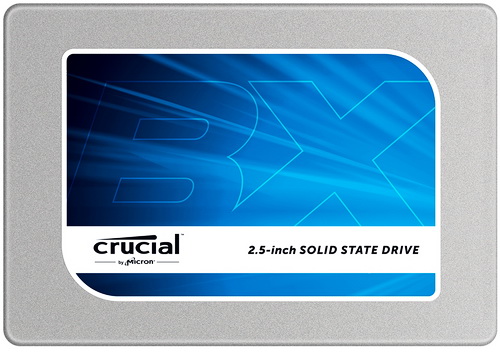
SSD (Solid State Drive) prices have taken a huge dive compared to even just a couple of years ago but evidently that hasn't been enough to attract even casual users (at least not most of them) so it doesn't really come as a surprise to us that lately many manufacturers do their best to introduce even more affordable models in the market by cutting around some corners. Of course many people see this as something strange since not too long ago every single manufacturer was trying to get the performance crown but the way i see it is that priorities have changed over time so currently cost is basically their primary goal (at least for that segment of the market). Crucial recently launched the BX100 line of SSDs aimed primarily towards casual users and gamers and for the past week we've been testing the 250GB variant.
Crucial.com is a leading online retailer specializing in computer memory (RAM) and solid state drives (SSD), and is operated by a subsidiary of Micron Technology, Inc., one of the world's leading manufacturers of computer memory products. Crucial.com offers more than 250,000 compatible products for nearly every computer system: home and business, old and new, PC and Mac® computers. Utilizing a suite of easy-to-use, free online tools, including the Crucial® System Scanner and the Crucial Memory Advisor™ tool, crucial.com makes it easy to find a compatible upgrade to improve computer performance and restore system reliability.
The BX100 is available in 120/250/500/1TB capacities so much like every other SSD line out there you can expect different performance levels so although all models feature 535MB/s in read the 120GB model features 185MB/s in write, the 250GB features 370MB/s in write and the 500/1TB models go up to 450MB/s. Under the bonnet Crucial has placed a brand new NAND flash controller by Silicon Motion (SM2246EN model) with 128Gbit 16nm synchronous Micron MLC NAND flash modules and a custom firmware which according to them offers extremely low power consumption. All models in the BX100 line feature an MTBF (Crucial calls it MTTF) rating of 1.5 million hours, endurance up to 72TB written (40GB per day for 5 years), garbage collection, TRIM, data path protection, thermal monitoring, SMART (self-monitoring and reporting technology) and ECC (error correction code). Unfortunately as mentioned earlier we got the 250GB so at least for now we can't really offer the best possible performance levels this line offers in our charts (this applies with most models however in the market).
SPECIFICATIONS AND FEATURES
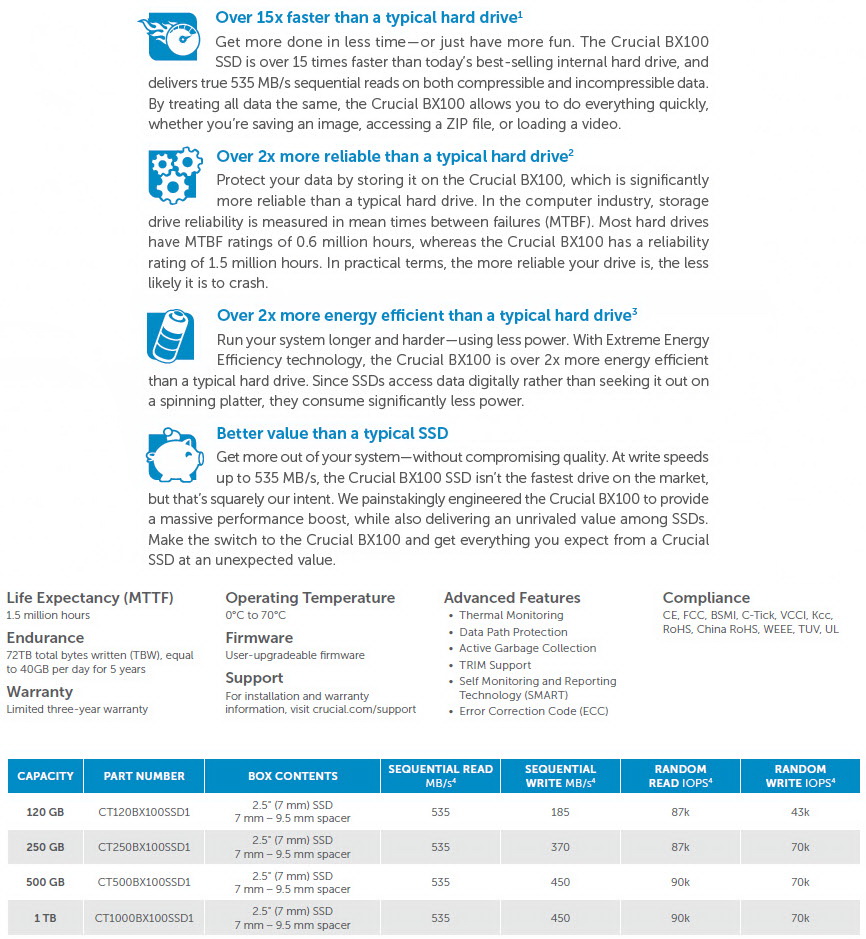
PACKAGING AND CONTENTS
A large product image, the company logo and the model capacity are the three main things you'll see at the front of the box.
The bundle contents, several certification logos and contact information are placed at the rear.
Along with the BX100 Crucial also packs a 7mm to 9.5mm spacer.
THE BX100 250GB
The 7mm thick BX100 is almost identical to every other SSD we've ever received by Crucial.
Once again on a large sticker at the rear of the drive we find the barcodes, serial number, part number, capacity, electrical requirements, connectivity, country of manufacture and of course several certification and warning logos.
At the rear we find the usual SATA power and data connectors.
Once you open the interior you will see the empty side of the PCB which is entirely populated in the 1TB model.
On the opposite side we find four 16nm 128Gbit Synchronous NAND flash modules by Micron, 128Mb DDR3L DRAM running at 800MHz and the Silicon Motion 4-channel SM2246EN controller.
TEST BED
TESTING METHODOLOGY
After roughly 6 years of testing sold state drives i have concluded that it's almost impossible for any single benchmark suite to accurately measure their performance and that's why in certain benchmark suites we see amazing read/write performance numbers with some drives while in others things are quite different. The reason behind this is that some benchmarking suites are configured to read and write random chunks of data while others read and write constant (sequential) ones. So that's why i always use a very wide selection of benchmarking suites including AIDA64, HD Tach RW, HD Tune Pro, Crystal Disk Mark, Sisoftware Sandra Pro, AS SSD, IOmeter and ATTO. To get the most accurate results each test gets repeated a total of 6 times with the average performance numbers recorded into our charts. Also as of February 25th 2015 our results will also include the Storage Networking Industry Association’s (SNIA) IOMeter tests. These tests include a 12 Hour write test used to “simulate” performance degradation over time and a mixed workload test which basically shows what you can expect when using an SSD continuously for roughly two hours. Unfortunately due to the time required for these tests we repeat them a total of 3 times and not 6 as the above.
Many people made inquiries about the charts ever since the last comparison so once again please do keep in mind that the Charts have the average performance numbers of each drive recorded and not the peak (highest) ones. Also although every single one of these programs can help potential buyers choose the right drive for their needs you should also remember that from any kind of benchmark up to real world usage the gap is not small (and usually most differences will go unnoticed by most people). All tests were performed in a fresh Windows 7 Ultimate x64 installation with every update installed up to March 8th 2015.
TEST RESULTS - AIDA64 / ATTO
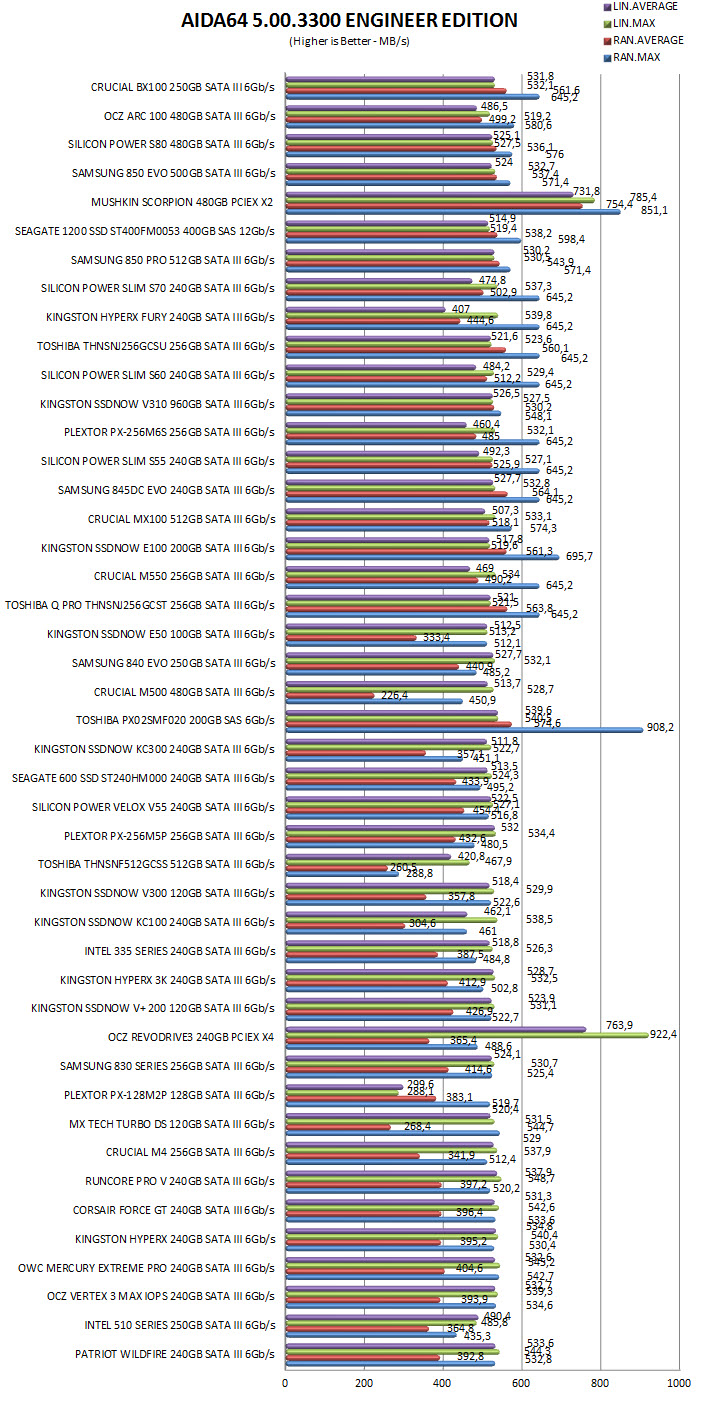

TEST RESULTS - HD TACH RW / HD TUNE PRO
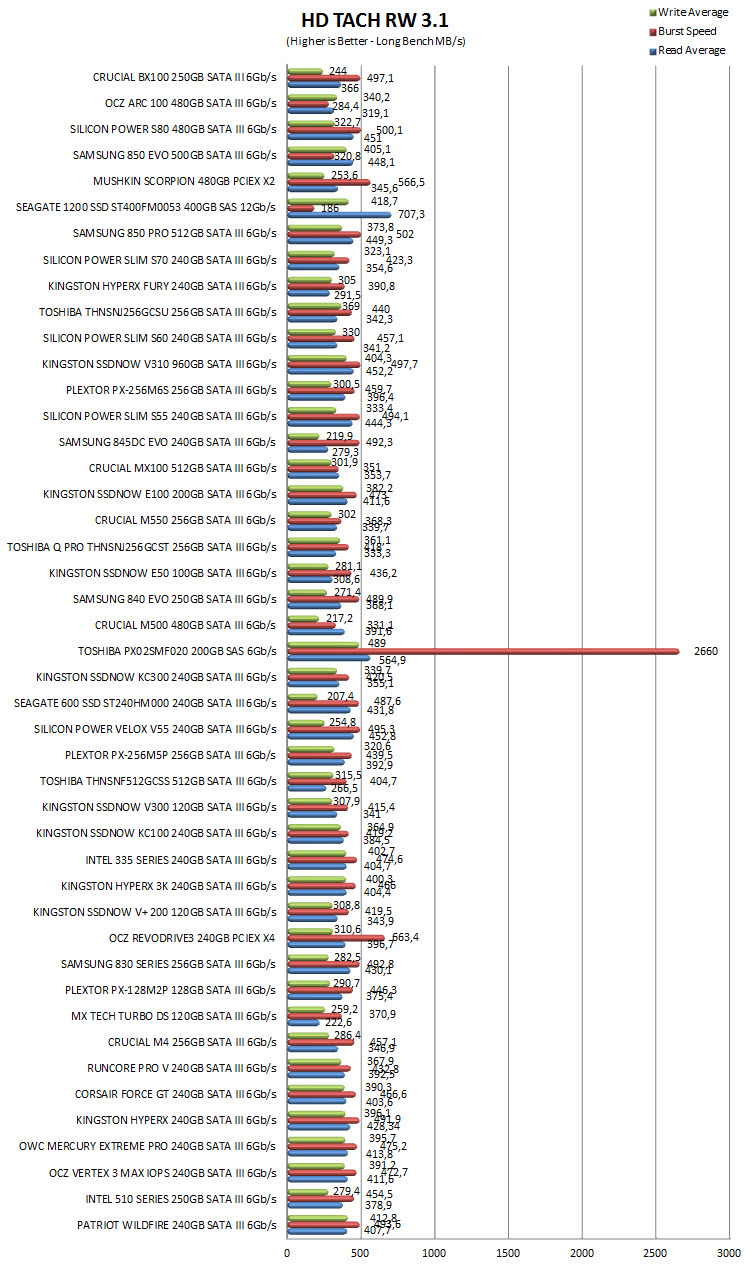
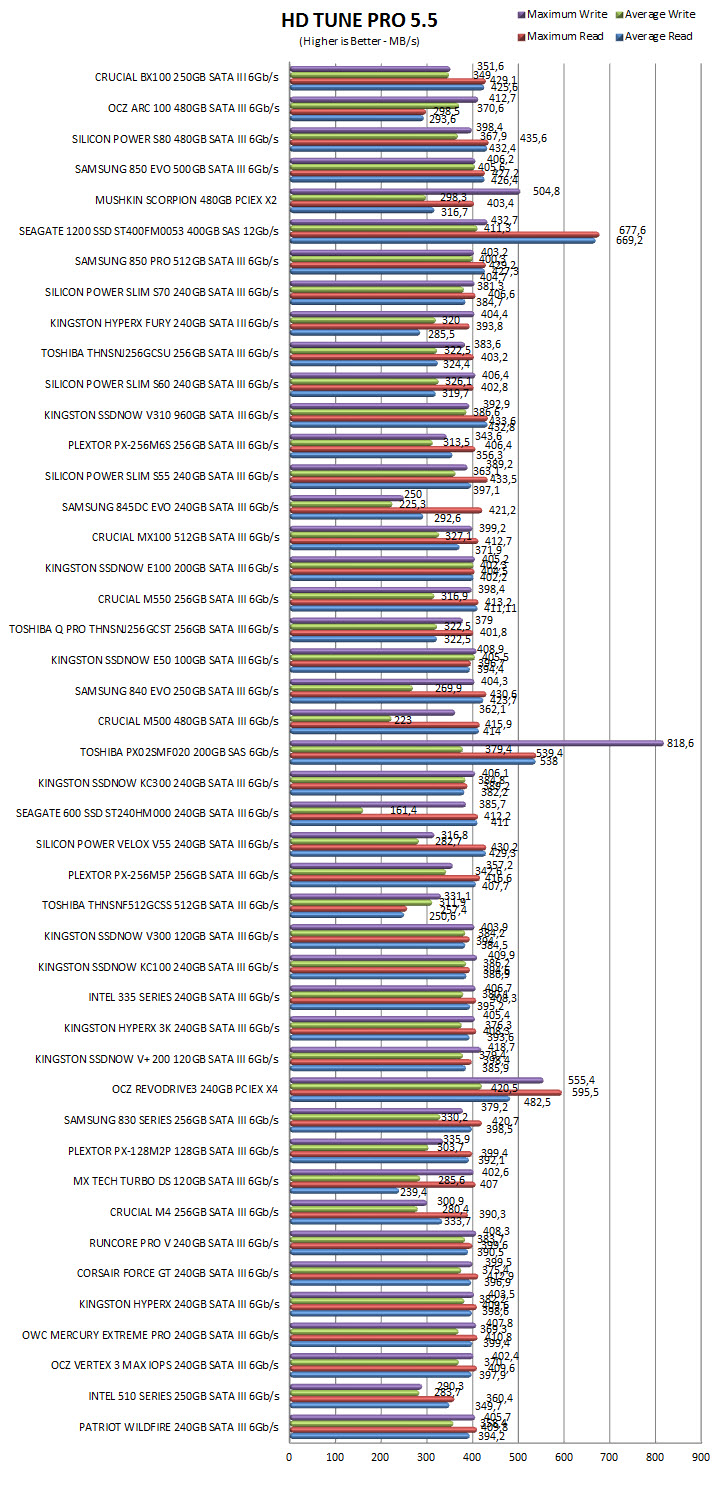
TEST RESULTS - SISOFTWARE SANDRA PRO / CRYSTAL DISK MARK X64
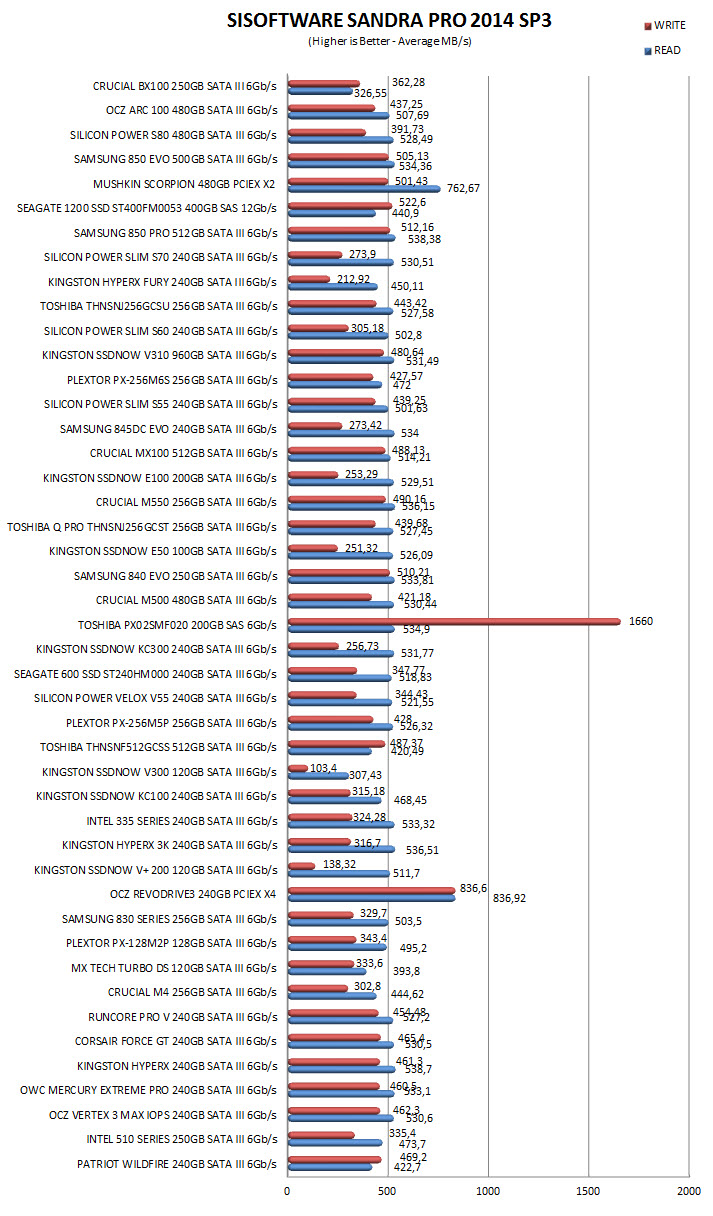

TEST RESULTS – AS SSD / IOMETER
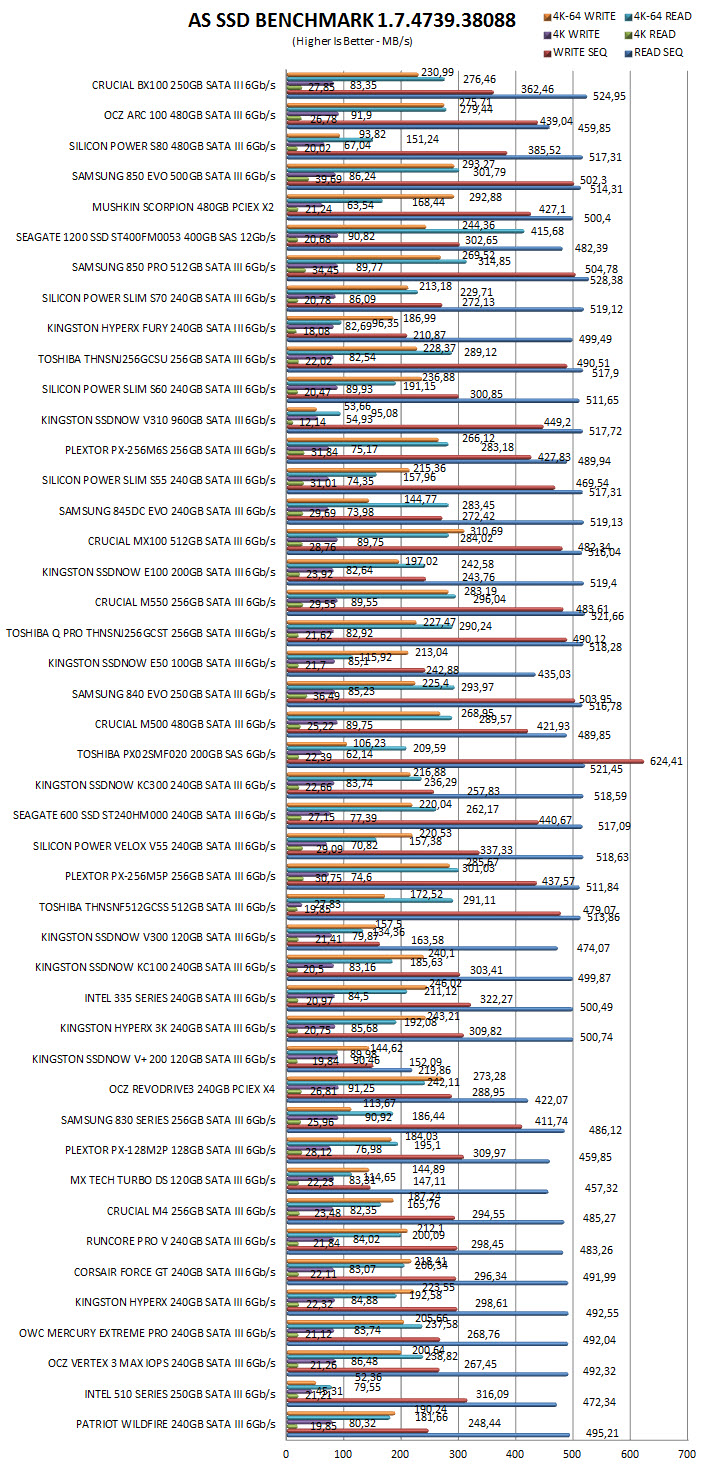
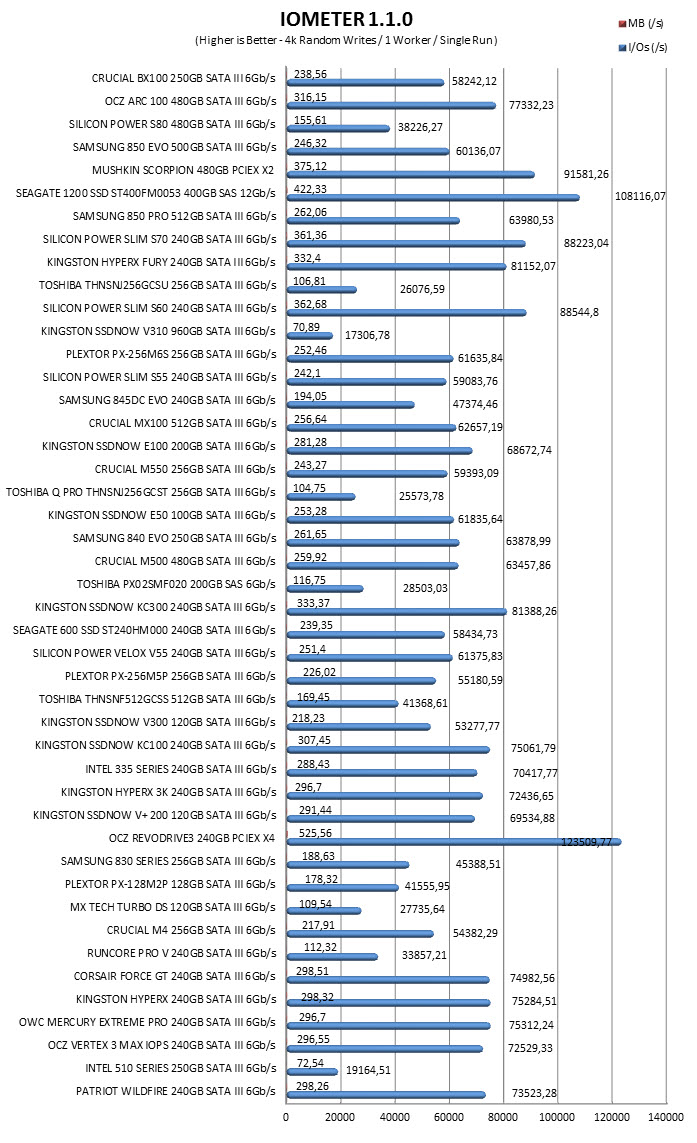
TEST RESULTS – IOMETER SNIA
CONCLUSION
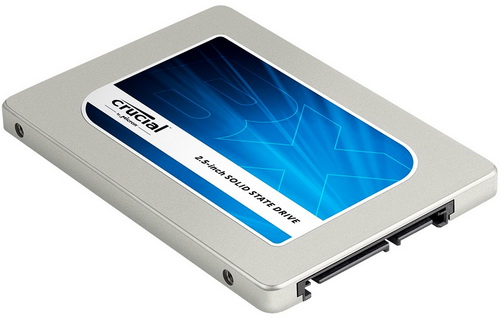
As you can all easily tell from our charts the BX100 250GB may not be amongst the fastest SSDs we've ever tested but on one hand Crucial never ment it to be (the MX200 line is aimed at that and our review is just a few days away) while on the other its performance numbers are quite good for an entry-level solution. Of course we'd all like to see better results in the IOMeter SNIA tests from an SSD made by Crucial and they may be able to improve on that by further tweaking the firmware of the controller (which you will be able to update on your own) but at least for now it is what it is. The BX100 line also offers a very basic feature set but for casual users and even gamers this should be plenty. Finally in terms of durability the BX100 250GB has nothing to be jealous from its higher capacity 500GB/1TB brothers since they all share the same MTBF of 1.5 million hours and endurance of 72TBW.
With the BX100 line of SSDs crucial aims to dominate the entry-level segment of the market where price is taken into account above performance and features and we can't really argue with that since with a current price tag set at USD99 inside the USA (Amazon.com) and 105Euros inside the EU (Amazon.co.uk) the BX100 250gb is amongst the most affordable models in the market today since you're charged roughly USD0.4 per GB (and that gets even lower with its higher capacity brothers). Overall if you're out in the market to get a low-cost SSD model without the extra data reliability features offered by more expensive models (like the MX200) then the BX100 is a very good choice and that's why it gets our Golden Award.
- Good Build Quality
- Good Overall Performance
- 3 Years Warranty
- Price (For Some)
CONS
- Lack Of Features

 O-Sense
O-Sense





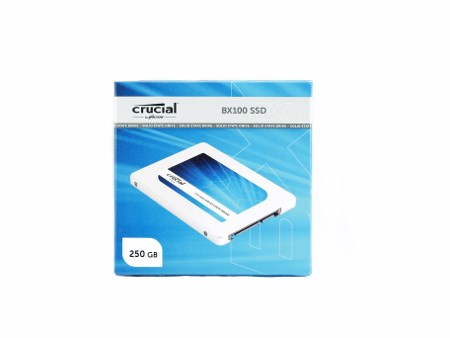
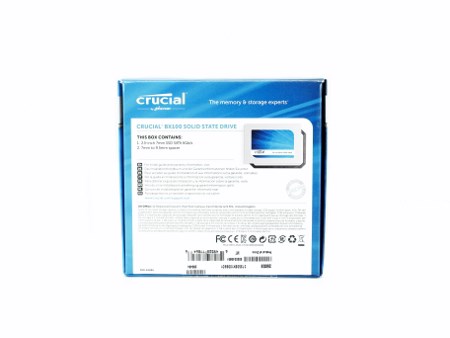
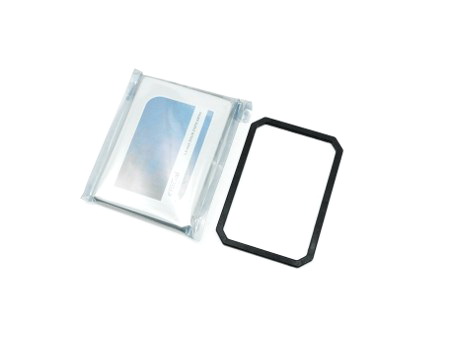
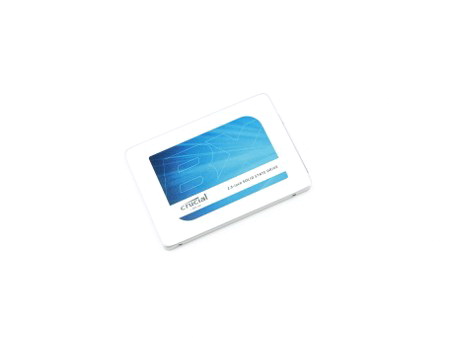
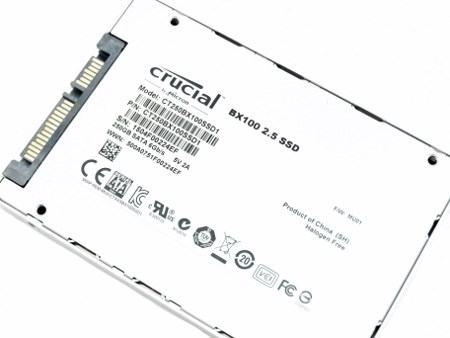
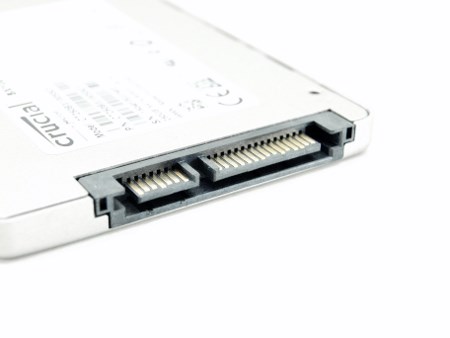
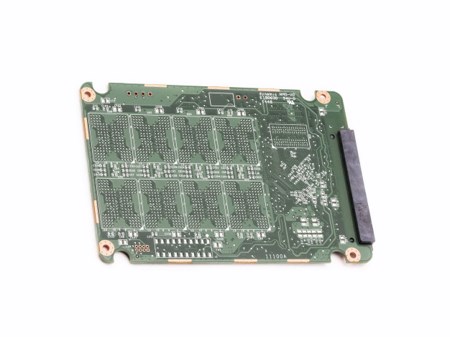
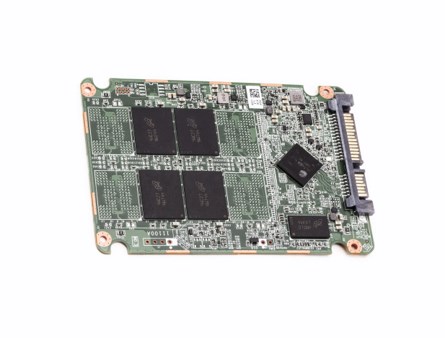



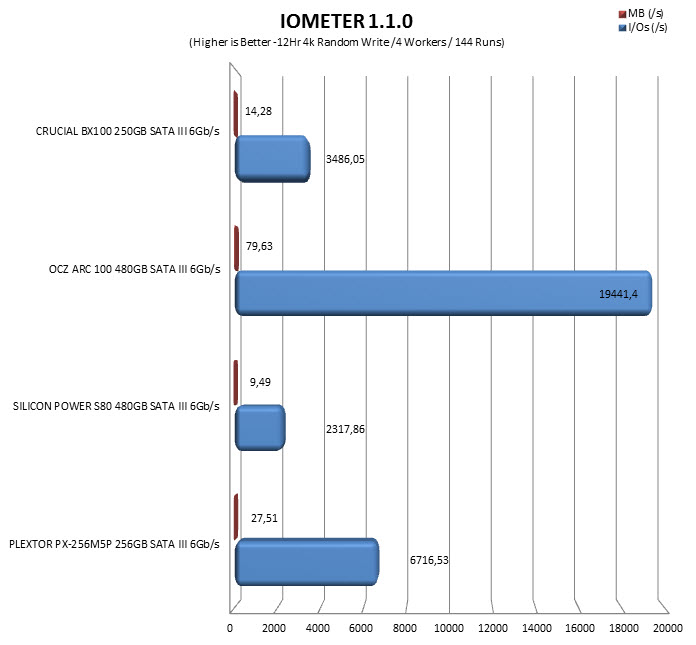
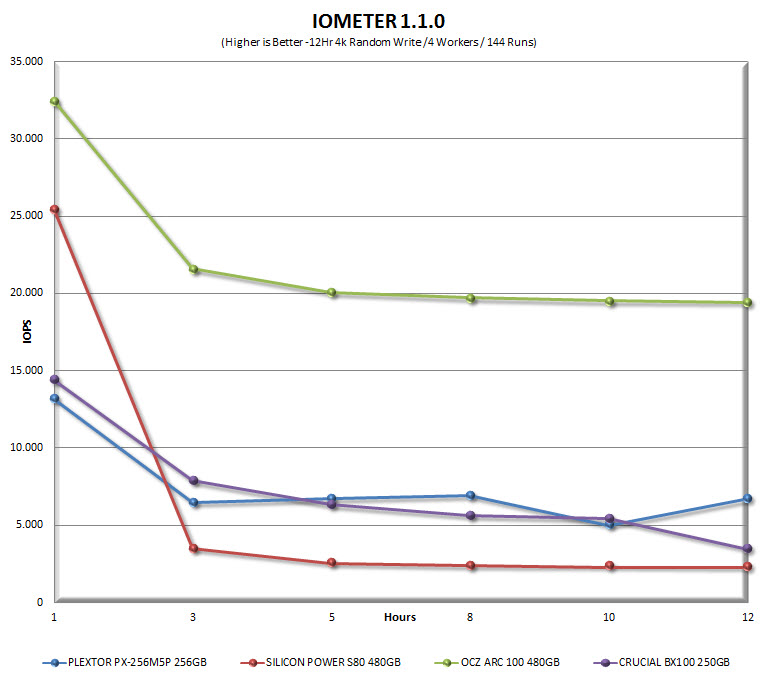



.png)

